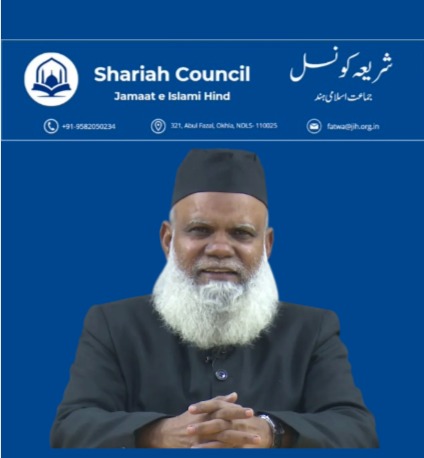New Delhi, July 22: On July 10, 2024, a Supreme Court bench led by Justices B.V. Nagarathna and Augustine George Masih, dismissed a petition challenging a High Court decision that mandated lifelong alimony of INR 10,000 per month for a divorced Muslim woman. This ruling upheld the right of divorced Muslim women to maintenance under Section 125 of the Criminal Procedure Code (CrPC).
In response, the Shariah Council of Jamaat-e-Islami Hind has expressed strong dissent. They argue that the Supreme Court’s decision contravenes established Islamic laws and the Shariat Application Act of 1937, as well as the Muslim Women (Protection of Rights on Divorce) Act of 1986.
Maulana Khalid Saifullah Rahmani, President of the All India Muslim Personal Law Board (AIMPLB), criticized the ruling as contrary to Islamic Shariah. He noted that similar judgments have been made in the past, and a team of Muslim Ulama and lawyers is reviewing the case for potential appeal to a proper bench of the Supreme Court. Dr. Qasim Rasool Ilyas, a spokesperson for AIMPLB, echoed these sentiments, suggesting that the courts should avoid applying the CrPC to Muslim family matters and adhere to the Shariat Application Act.
Dr. Mohammad Razi-ul-Islam Nadvi, Secretary of the Shariah Council, termed the ruling as a clear intervention in Muslim personal law. He argued that the Shariat Application Act of 1937 grants Muslims the right to resolve marital issues according to Islamic family laws. Dr. Nadvi expressed concerns that such a decision could lead to injustices, where husbands might prefer to retain their wives in marriage under oppressive conditions rather than providing lifelong alimony.
Addressing the issue of post-divorce maintenance, Dr. Nadvi suggested that the responsibility for supporting divorced women should lie with their families and society, not with former husbands. He argued that imposing lifelong maintenance on ex-husbands is unfair and undermines women’s dignity.
Dr. Nadvi also highlighted that in Islam, marriage is a contract distinct from other religious views, such as Hinduism, which considers marriage a lifelong bond. He questioned why a former husband should be held responsible for alimony after a divorce, when such a responsibility does not persist in other contractual relationships.
The Sharia Council’s statement calls for a re-evaluation of the court’s role in Muslim personal laws and advocates for closing the avenues for judicial interference in these matters.




